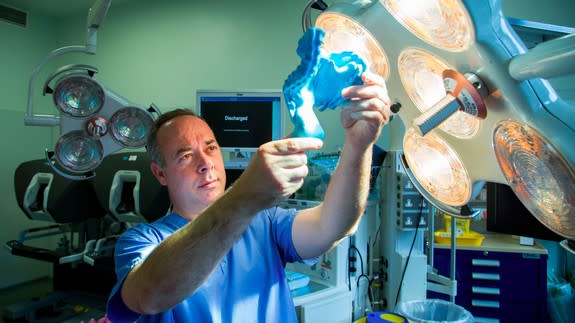
Irish researchers have confirmed
that the mesentery — a fold of membrane that connects the intestine to
the abdomen — is its own continuous organ, and not a series of
fragmented parts like experts had previously thought.
The discovery could create a new field of
"mesenteric" science and may help doctors better understand and treat
abdominal diseases, said Calvin Coffey, a professor of surgery at
University of Limerick's Graduate Entry Medical School.

Image: The Lancet Gastroenterology & Hepatology
"We are now saying we have an organ in the body which hasn't been acknowledged as such to date," he said in a news release.
Coffey published his peer-reviewed findings in the November issue of The Lancet Gastroenterology & Hepatology, a top medical journal on the digestive system.
Mashable was unable to reach Coffey for comment by the time of publication.
An organ is considered to be a self-contained
body part that serves a specific vital function. The heart, for
instance, is a muscular organ that pumps blood through our blood
vessels.
Researchers say they still don't quite understand the mesentery's key functions, beyond the obvious role as a connective layer.
One of the world's earliest depictions of the
mesentery was produced by the Italian Renaissance artist Leonardo da
Vinci. While his drawing and subsequent medical illustrations showed the
mesentery as a continuous structure, in the past century scientists
came to believe it was a series of broken-up pieces, and thus less
medically significant.
"When we approach it like every other
organ...we can categorize abdominal disease in terms of this organ," he
said in the news release.
"This is relevant universally as it affects all of us," he added. "Up to now there was no such field as mesenteric science."
No comments:
Post a Comment